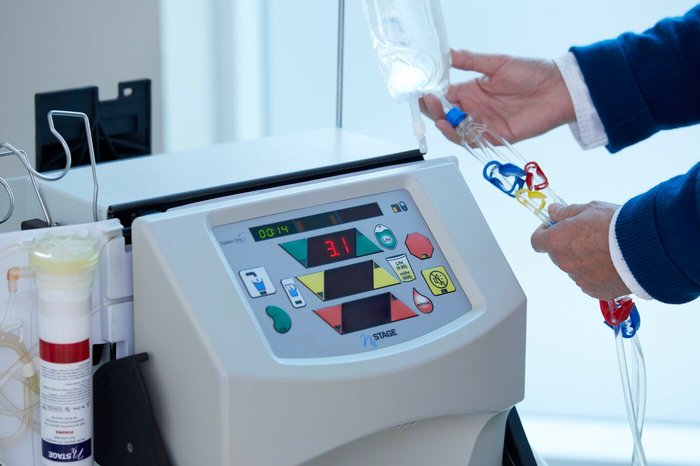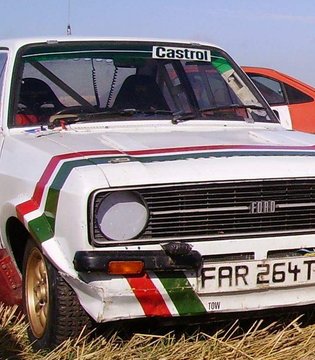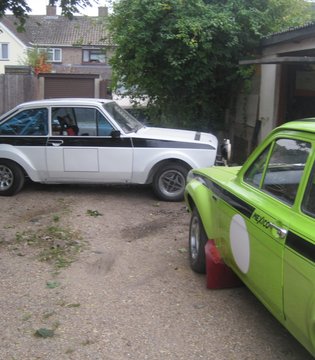Diagnosis and dialysis
"I was 19 when I was diagnosed with Alport syndrome, around the mid-1980s after I had gone for a job and had to have a medical. There were no signs of anything major, but there was something wrong in my urine. I saw the doctor and they found I had a problem with my kidney (I was only born with one, the other didn't grow). I was referred to a specialist and put on tablets to reduce my blood pressure in order to prolong my kidney function. It was another ten years until my kidney actually failed.
"When I was first diagnosed, I don't think they realised there was a link to kidney disease in the family. Mum had kidney failure; she got to about 60 years old when her kidneys failed. My uncle and one of my nephews had kidney problems. I think my cousin's kidney packed up around 29 years old, my uncle was around 27, and I was 29. I remember growing up as a kid, my uncle would dialyse at home using this whopping great big machine. I never once thought I would be the one dialysing in the future.
"The year before my kidney failed, I was extremely weak and tired, sleeping for 20-odd hours at a time, losing days when I'd fall asleep in sunlight and wake up in sunlight. When my mum's kidneys failed, she initially did peritoneal dialysis (CAPD) and got on well with it, but because I was a mechanic and I was always dirty at work, I didn't want to do peritoneal dialysis, with the bag changes every day. I had a neck line put in and ended up doing haemodialysis (HD) in the late-night slots.
"The build up to starting dialysis was difficult. I was so worn out from the kidney disease, and the first three months after starting HD were the most difficult physically with the headaches and the shock to the system. Dialysis affects you psychologically – I had mortgage issues, relationship issues, job issues. Although I was on a regular pattern of HD, because I wasn't getting home until 4am I had to alter my work shifts, but after a few months they said I couldn't fulfil the contract, and I was sacked. I was given a small pension offer which wasn't brilliant, but it has been enough over the years.
"I struggled with fluid intake on HD. I found that constantly weighing myself was best, learning to work out my dry weight and then balancing water with that. There was one time when I had about half a glass of liquid too much and crashed on the dialysis machine. The only way to describe is like being hit by freight train. You never want to go through that again. But even with that, I felt physically so much better doing HD. Dialysis is like a job; you have to accept it, get up and do it. If you can stay positive, you'll be okay."
My first kidney transplant
"I was on dialysis for about 18 months until my first transplant in July 1996. I went about a year on the transplant list but got fed up with that, so I talked to people I knew about living donation and a workmate said he donate to me. We did all the tests, and he was a match. They were at the point of planning, and then another (deceased donor) kidney became available, so I had that one instead!
"That kidney took ages to work, and I was in hospital for three to six months. It was disappointing, being in hospital, still dialysing, seeing other patients leaving with their new kidneys. The kidney started working but it was slow. I had biopsies, failures, issues with medication, but, after six months, it got better. That kidney worked for 14 years, almost to the day, eventually failing because of a number of complications including Post-Transplant Lymphoproliferative Disorder."
Home haemodialysis, a second kidney, and getting back to 'normal'
"I remember when my transplanted kidney failed, those were dark days. It took me a while to get over losing that kidney. Still, I eventually got into the routine of dialysing again and ended up on NxStage home HD machine, which was better in some ways. I was on dialysis four days a week, I could change the time of day I was dialysing. It was more flexible.

"However, my kidney team wouldn't put me back on transplant list, because of the issues I had had. That was disappointing, but I could understand. Then, when I moved to Dorset around eight years later, my unit there talked about adding me back on the transplant list. I wanted to take the chance with another transplant. I didn't know what was going to happen, but I had to look on the bright side. Before my first transplant I was nervous – it was going into the unknown, having the operation. The second time, I didn't give a damn, it was just about getting it done with! You have to have the right attitude; you have to trust that what you are doing is right.
"I got the call a year later, in July 2024. The new kidney started working straight away, at about 45% function. It is still changing day to day, the function dropping a bit and then coming back up and at the moment I am getting out of breath a lot. The first six weeks were slow, with clinic visits and blood tests, but now it is getting better. It's been tricky, dealing with ups and downs, but now I've got my transplant it's as if I've been given my life back! I feel like I have more freedom and it's up to me on the day now to decide if I want to go out or do something. I've always been into racing since I was a teenager, always mad on cars. I've done road rallying, autocross and auto testing, single stage rallying and multi-stage rallying. Loose-surface rallying especially keeps a big grin on my face.
"I can account for 22 cars I've had over the years. Years ago, you could just scrap it, buy another car, and carry on. Nowadays, it's a bit more expensive! I have an MK2 Ford Escort that I'm putting it back together now – back in 2005 I was doing auto cross, and rolled it, bouncing it on the roof at 70MPH!
"At the moment I'm just waiting for the safety equipment, but I hope to get it back on the road soon, now I've had my transplant. Life is getting back to 'normal'."
Mike's rally cars

